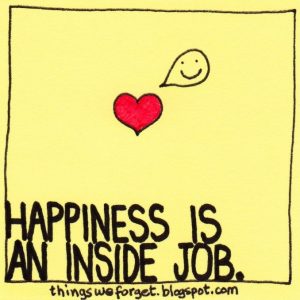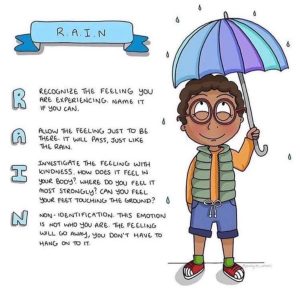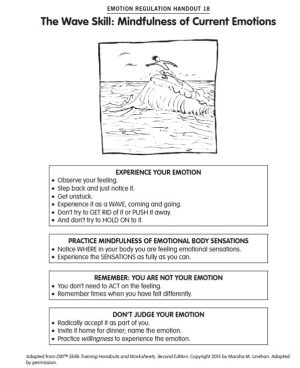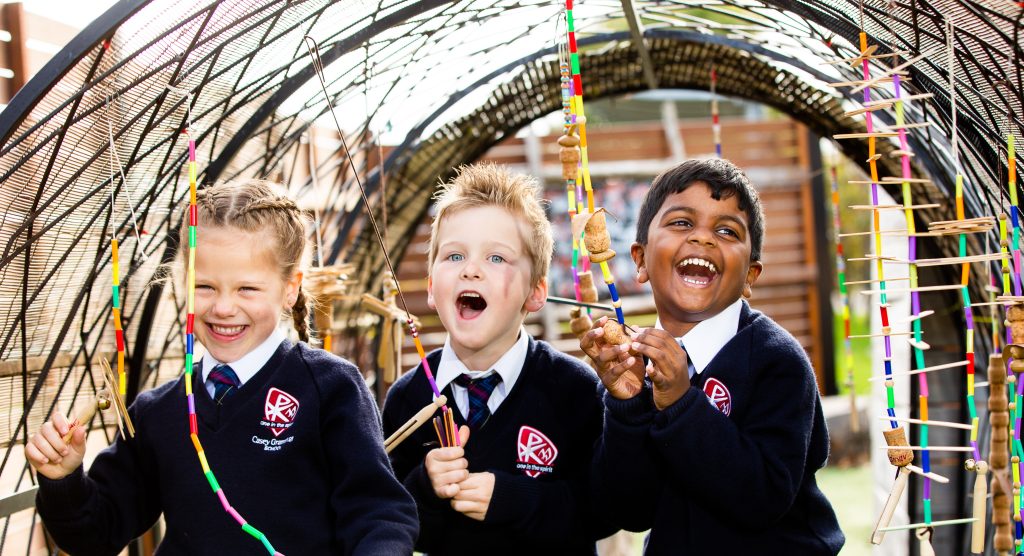Chasing Happiness

When I ask students what they want to get out of counselling, they often say that they just want to be happy. Fair enough, don’t we all? However, our emotional states are like the weather and are forever changing. Just as we cannot hold on to any one specific state, we (sadly) cannot avoid the more unpleasant ones either. Some people might try using unhelpful numbing or avoidance coping mechanisms, such as overeating, overworking, excessive drinking, excessive screentime or isolation. Even though these might provide some temporary relief, it can lead to harmful consequences in the long run.
Emily and Amelia Nagoski wrote an amazing book on this subject, called Burnout: The Secret to Unlocking the Stress Cycle. They say, “Emotions are tunnels. If you go all the way through them, you get to the light at the end. Exhaustion happens when we get stuck in an emotion.”
I absolutely love this spot-on analogy of emotions. The only way to get to a more pleasant emotion such as happiness (in a healthy way), is to feel the dark and unpleasant emotions all the way through. Only then are we able to enter a more pleasant and peaceful emotional tunnel!
The writers explain that we may get stuck in an emotional tunnel for all kinds of reasons, including exposure to trauma, “or you routinely find yourself in situations, at work or in your personal life — or both — where you can’t go through the tunnel because the people around you expect you to sit politely and smile benignly and do your best, while your body stews in stress juice. ‘No, no, it’s fine. I’m fine. This is fine,’ you say, from the darkness of the middle of the tunnel. Sometimes we get stuck because we can’t find our way through. The most difficult feelings — rage, grief, despair, helplessness — may be too treacherous to move through alone. We get lost and need someone else, a loving presence, to help us find our way.”
But how can we help our children and other loved ones when we see that they are struggling going through a very dark tunnel? Well-meaning parents often try to intercept and rescue their children from a dark, emotional tunnel by saying things like, “It’s not that bad,” “Stop crying, other kids have it way harder than you,” “You’re overreacting,” “Stop being such a drama queen,” or perhaps attempt to fix their problems for them or try to logic them out of their tunnel. The reason for this may simply be that we love our children and want to rescue them from this darkness. It may, however, also be that we tend to feel uncomfortable with other people’s pain and journeying through a dark tunnel with them. We would therefore rather snatch them out of it very quickly so that we can feel better ourselves. Our children need to learn that they can cope with overwhelming emotions. By feeling emotions all the way through, they can learn and develop healthy emotional regulation strategies and resilience which will benefit them for the rest of their lives. Our role as parents is to be their emotional co-regulators, joining them where they are at in their tunnels, and taking their hand so that they know they are not going through this alone. We can support them through their dark tunnels with a non-judgmental attitude, unconditional acceptance, empathy, compassion, validation of their emotions, not taking it personally, and constant reminders that we are there for them every step of the way.
We can support our children to get to the bottom of the true emotion they are experiencing and dealing with that emotion. For example, anger may only be the tip of the iceberg and beneath that anger there are often other painful emotions, such as sadness, embarrassment, hurt or shame. Once the true emotion is identified, we can assist our children in creating some space between themselves and an overwhelming emotion, by labelling the emotion, as well as non-identification with the emotion. An example of this is replacing “I am anxious” with “I notice that I am feeling anxious.” Susan David, a Harvard psychologist and author of Emotional Agility states that one of our most important jobs as parents is “helping your child show up to all emotions — not this idea that some emotions are good and some are bad, but that emotions just are.”
Below are a couple of resources (R.A.I.N. by Little Legs Ltd https://m.facebook.com/littlelegsltd/photos and The Wave Skill from Skills Training Handouts for DBT® Skills Manual for Adolescents by Jill H. Rathus and Alec L. Miller. Guilford Publications, Inc.) that can assist in dealing with overwhelming emotions:


So, how can we obtain true happiness if our emotions are constantly changing? I believe that true happiness is living a rich, full, and meaningful life that is in line with our core values, radically accepting all things outside of our control (including our own thoughts and feelings), not believing all our thoughts as facts, and consistently practicing gratitude for the things and relationships we have in our lives. I recently attended a talk by Dr Michael Carr-Gregg in which he mentioned the three things that will kill happiness over time: Comparing yourself to others, a lack of close relationships, and holding on to resentment. Perhaps we can make a start in our quest for happiness by first of all trying to avoid these three things! 😊
I’ll end with a quote by Susan David, Ph.D. “Happiness is not the goal. If you build your life around things you value, happiness will be a byproduct.”
Until next time,
Marisa Smit
CGS Psychologist

 1095
1095










